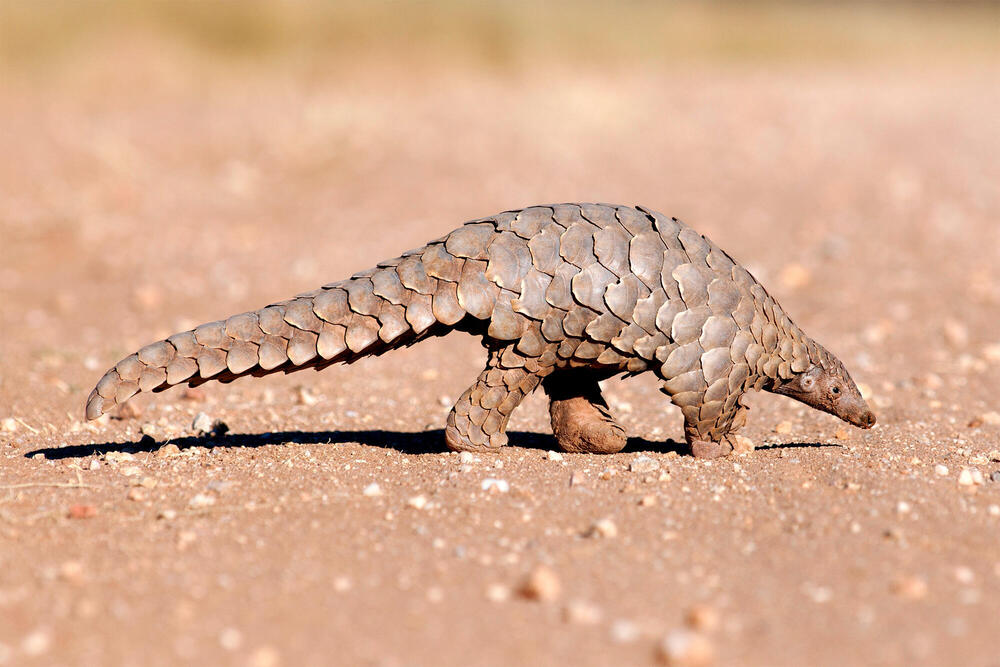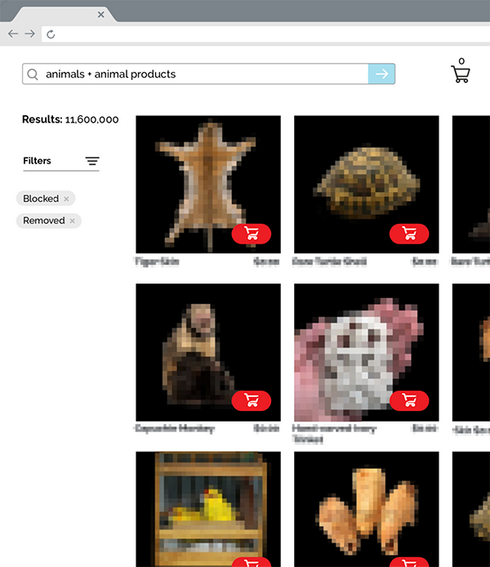These days, you can find almost anything on the internet—including endangered and illegal wildlife. Unfortunately, technological advances have made it easier than ever to traffic illicit live animals like tiger cubs, rare parrots, and prohibited reptiles, all of which are regularly sold as exotic pets. Meanwhile, products derived from species such as elephants, pangolins, and jaguars—ivory figurines, traditional medicines, pelts, and more—are readily available for purchase online. And much of this trade happens in plain sight on popular, everyday sites and apps.
The good news: Leaders in the tech sector, including eBay, Meta (Facebook, Instagram, etc.), and TikTok, have come together to tackle the issue. Convened by WWF, TRAFFIC, and the International Fund for Animal Welfare, the 47 companies in the Coalition to End Wildlife Trafficking Online take measures to seek out and remove illegal posts from their platforms. Strategies include training staff, blocking keywords, adjusting detection algorithms, and strengthening prohibited content policies. Companies get their users involved too, by running education campaigns on social media and encouraging users to report suspicious posts.
By working together and sharing information and best practices, these companies are scaling up efforts to identify wildlife traffickers, halt illegal sales, and prevent the poaching that’s driving countless species toward extinction.
Want to get involved?




